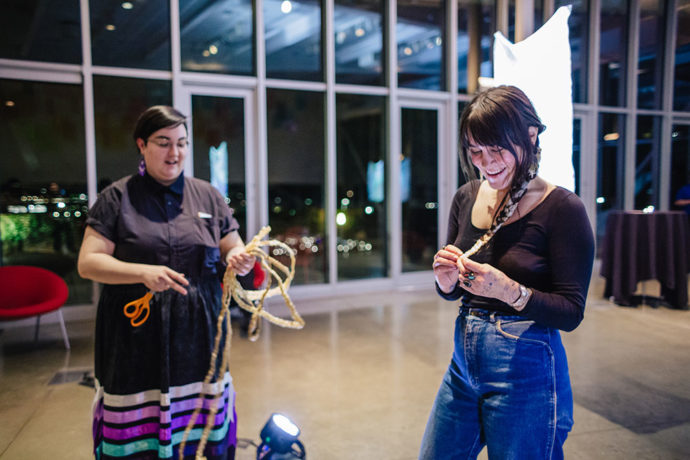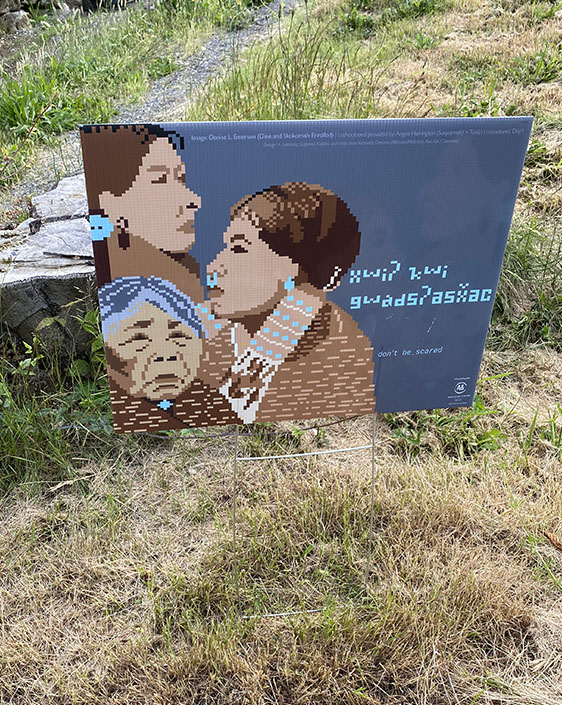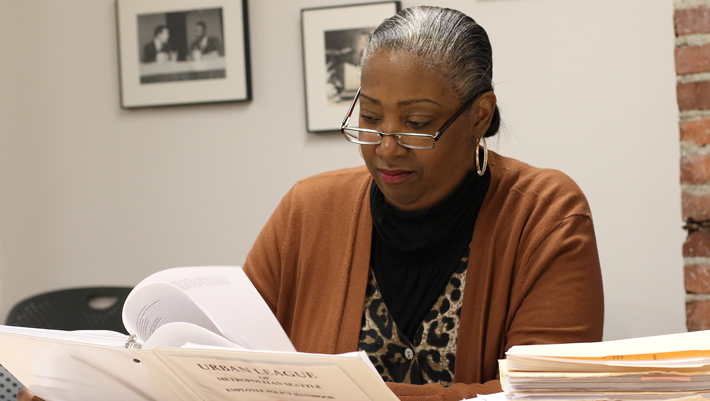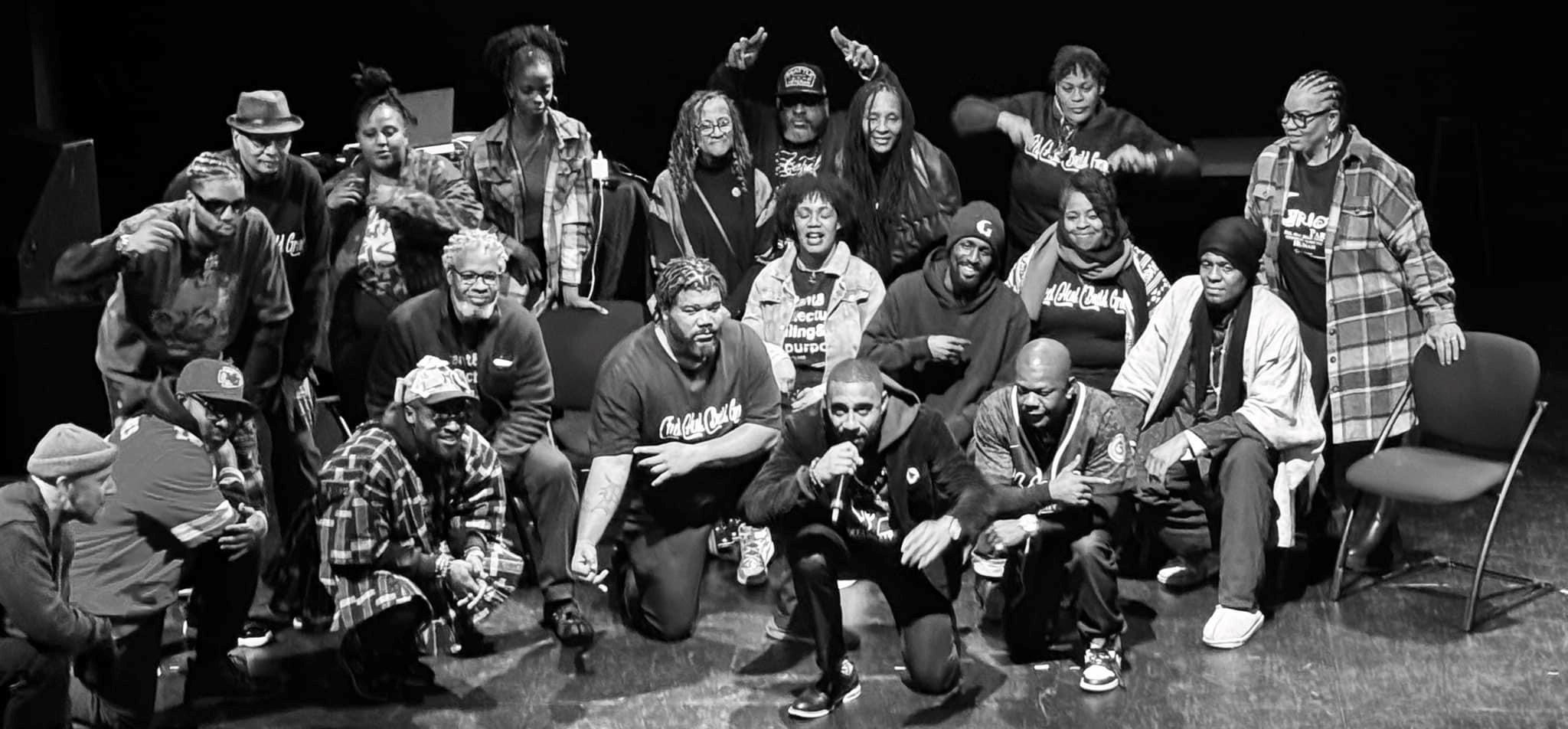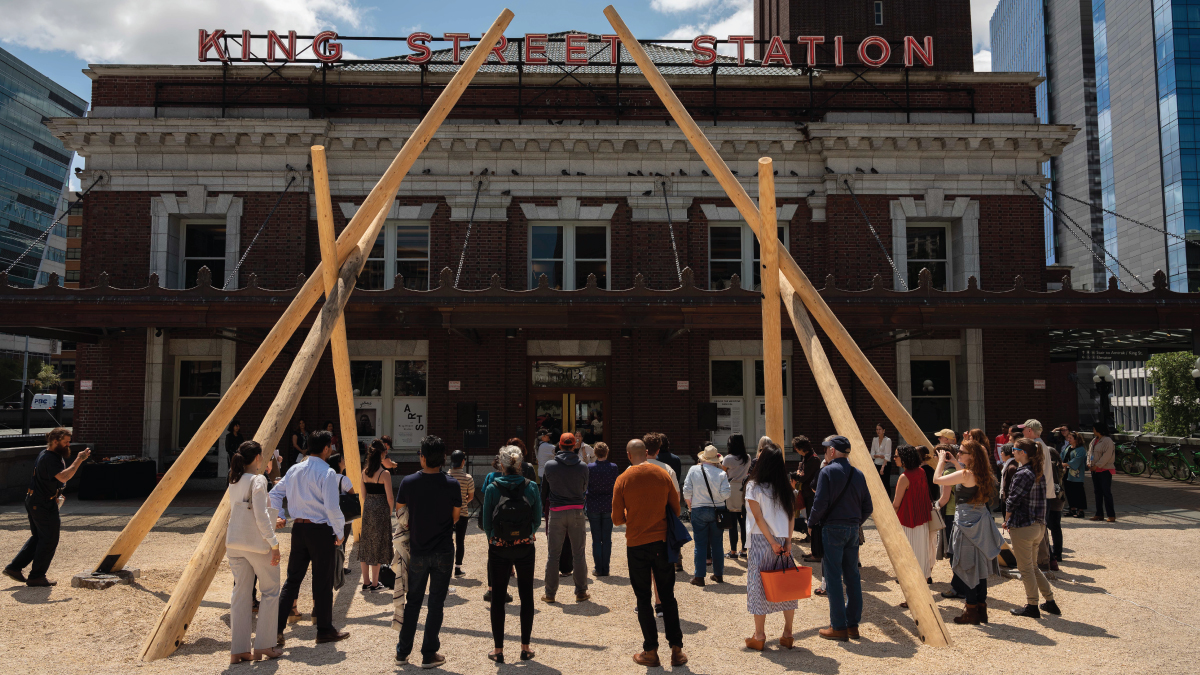
In celebration of Native American Heritage Month, we are hosting a series of profiles and stories to amplify and honor people, businesses, organizations, stories, and projects connected to Seattle’s Indigenous community.
yəhaw̓ is a collective of interdisciplinary Indigenous creatives who work to improve Indigenous mental and emotional health outcomes through art-making, community building, and equitable creative opportunities for personal and professional growth. Their work centers the voices of Indigenous women, youth, and Two Spirit individuals with the intention of giving all participants experience, exposure, and sustaining connections. We connected with board member Kimberly Deriana to learn more about yəhaw̓. Read excerpts from our conversation below.
Can you tell me a bit about yəhaw̓ and the services you provide?
We’ve always been an arts-focused organization and Indigenous creative collective, yəhaw̓ started as an effort to activate the region and city with Indigenous knowledge, art, and community. It was a year-long effort of activating different city spaces and sites with arts programming and cultural building that culminated in an inaugural show for the King Street Station ARTS Gallery. After that first exhibition, we have continued to build partnerships and host different art programs. Our programming consists of mentorship and creation opportunities, art commissions, art markets, artist residencies, workshops, trainings, and performances. We’ve built a strong network of Native artists. Part of our methodology is utilizing Indigenous community-based participation. So sometimes people will come to us with an idea and projects are formed through community curators. Sometimes we’ll give people a prompt and ask them if anyone wants to step up and lead the effort. It’s been cool to be able to help other people build skills in leading projects and seeing a vision come to fruition.
Can you talk about the role that art plays in a lot of Native cultures and how that inspires the work you are doing?
For many Natives, art is vital to our cultural practices and how we interact with each other in community, so yəhaw̓ felt like a very natural family and community to be a part of for a lot of folks. When you think about art as a label, there isn’t really a word for it in a lot of Native languages. But it is a part of our everyday, incorporated into all that we do. Creating with our hands and honoring materials and beauty is part of how we honor our ancestors and the creator. It is a form of medicine for a lot of people. Art is a way to remember our interconnectedness with plants and land and animals and each other. It is just a very sacred and important aspect of sustaining our cultures and our livelihood. Additionally, there is also a lot of function and economic opportunity to it. For a lot of people, it is an important source of income.
How have the incidences of the past two years impacted your work?
We’ve had to slow down our community gathering. A lot of what yəhaw̓ was providing for people was space to come together and either make something, talk about art, or work on projects together. So, to not be able to gather the way we were pre-pandemic has been very difficult. Our team is so creative, and the collective artists are so resilient that they have figured out ways to do smaller-scale projects, but our momentum just kind of slowed down with the pandemic and we’ve had to re-invent how we keep community engaged virtually. We have new shows in the gallery on our website right now that address the art people have created during the pandemic and honors our Afro-Indigenous kin through art. They are called “Being A Good Ancestor: Indigenous Responses to Covid” and “Telling Our Own Stories: Afro-Indigenous Creatives” which were curated by Britt Reed. There are a bunch of amazing artists that submitted for that show, and even though it was challenging to bring together all these voices on an online platform, it turned out really well.
What are your hopes for the future of both yəhaw̓ and Seattle?
For yəhaw̓, we are just excited to re-engage with community in person. We’re excited to create opportunities to be with each other, process this time that has passed, and create space for healing and grieving the past two years. Right now, we’re kind of in a transition space. We just got our official 501c3 title last January, and we are currently working on raising funding to purchase a parcel of land. The property will be a place to continue doing the work that we’ve been doing and provide a space that is Native-led to help artists amplify their amazing skills in a safer, more experimental space that offers a sense of belonging. Hopefully, we’ll be able to collaborate and create new programming that our community wants and continue envisioning what Indigenous futurism means in Seattle. On the larger scale for Seattle, I hope Native organizations can be thought partners and collaborators with the City to amplify the teachings from our ancestors and help the city flourish in a regenerative and sustainable way.
In recognition of Native American Heritage Month, is there a Native organization or individual that you think people should know about?
I think there are so many elders that have nurtured this work for us. It is such an honor to talk about the work we are doing, but whenever we are talking about Indigenous futurism, we always want to make sure we are prioritizing and giving our elders the space they deserve to be heard and uplifted before they are no longer with us. That is going to be part of my focus for this next year. It has been hard during the pandemic to see each other, to check-in, and make sure we are really following the wishes of our elders and their hopes for how we grow as a people.
To learn more about or to connect with yəhaw̓ visit: www.yehawshow.com.
